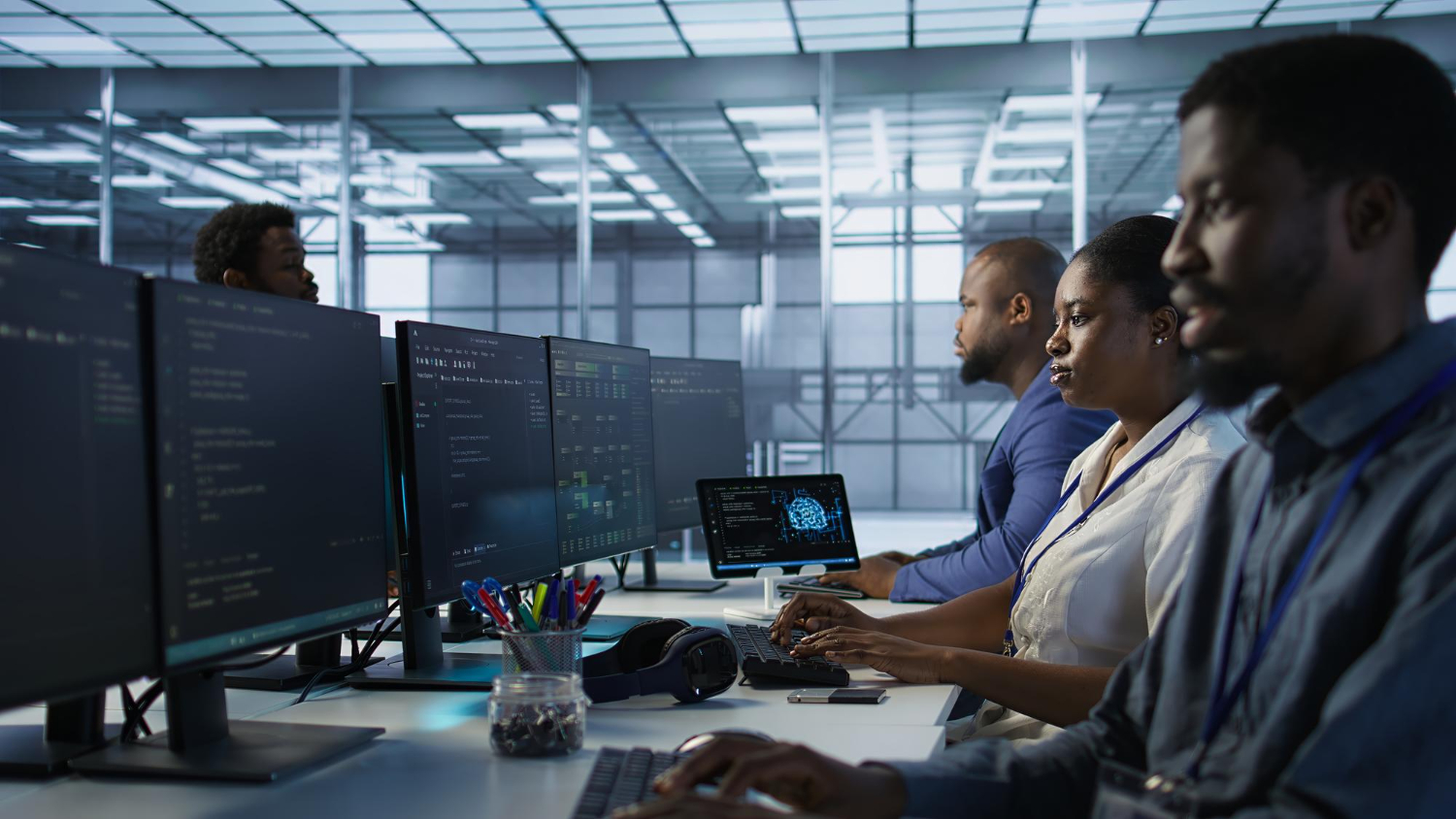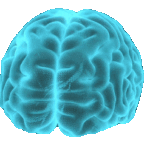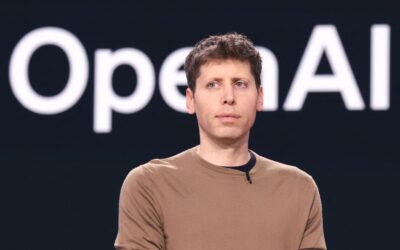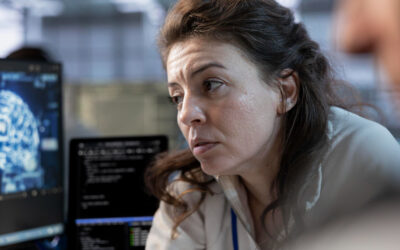Birth and Academic Background:
Dario Amodei was born in 1983 in San Francisco, United States, into a family of Italian descent. From a young age, he showed interest in science: he studied physics at Stanford University after transferring from Caltech, where he began his university career. He later earned a PhD in biophysics from Princeton University in 2011, focusing on the electrophysiology of neural circuits. He completed his training with a postdoctoral fellowship at the Stanford School of Medicine, where he developed innovative methods in mass spectrometry for proteins.
Early Professional Career:
Before entering the world of artificial intelligence (AI), Amodei worked at Skyline as a software developer and collaborated on projects related to protein studies. In 2014, he joined Baidu, where he led the development of Deep Speech 2, a voice recognition model based on deep learning that overcame language barriers such as Mandarin and English. Later, at Google Brain, he specialized in AI safety, publishing pioneering research on how to prevent risky behaviors in autonomous systems.
OpenAI and Key Contributions:
In 2016, Amodei joined OpenAI as the leader of the Artificial Intelligence safety team. He rose quickly, becoming Vice President of Research in 2019. Under his leadership, groundbreaking models such as GPT-2 and GPT-3 were developed, transforming natural language processing. However, his focus on ethics and safety clashed with OpenAI’s increasing commercialization after Microsoft’s investment in 2019. This led him to resign in 2020, along with 14 other researchers, to found Anthropic.
Founding of Anthropic and Ethical Vision:
In 2021, Amodei and his sister Daniela co-founded Anthropic, a company registered as a public benefit corporation to balance profit with social good. Its mission is to prevent AI from becoming an existential threat. Here, he developed Claude, a language model that prioritizes alignment with human values through techniques like “constitutional training,” which incorporates ethical principles into its design. Anthropic has raised over $5 billion, including a $1 billion investment for its “Claude-Next” model, which is ten times more powerful than its competitors.
Impact on AI Safety:
Amodei is a global reference in Artificial Intelligence ethics. In 2023, he testified before the U.S. Senate, warning about risks such as the creation of autonomous weapons or synthetic viruses. That same year, he was included in the TIME100 AI list alongside his sister. His 2024 essay, “Machines of Loving Grace,” proposes a future where AI radically improves human well-being, provided its risks are properly managed. He declined offers from OpenAI to replace Sam Altman and to merge both companies, maintaining his philosophical independence.
Legacy and Perspective:
Amodei combines scientific rigor with a pragmatic vision: he stores supplies for global crises and advocates for preparedness against pandemics or energy collapses. His focus on “scalable safety” and transparency has influenced government policies and the tech community. At 42, his work continues to define how AI can be a force for progress without compromising human safety.
In summary, Dario Amodei embodies the fusion of technological innovation and ethical responsibility, charting an alternative path in the AI era. He follows Buddhist philosophy and maintains a much lower profile than Altman or Musk.
Anthropic: Innovation in AI with a Focus on Safety and Understanding:
Anthropic is an artificial intelligence research company founded in 2021 by former OpenAI members, including Dario Amodei and Daniela Amodei, with the goal of developing AI systems aligned with human values and focused on safety, transparency, and controllability. Its approach combines technical advances with deep ethical reflection, positioning itself as a key player in the creation of trustworthy and beneficial AI for society.
Claude: A Safe and Collaborative Language Model:
Claude (launched in 2023) is Anthropic’s flagship model, designed to prioritize safety and prevent harmful or biased behavior. Unlike other models, Claude integrates techniques such as “constitutional training,” where its responses are guided by explicit ethical principles (e.g., not generating violent or discriminatory content).
Its main applications include: ethical writing assistance, legal document analysis, educational tutoring, and specialized technical support.
Research in Alignment and AI Safety:
Anthropic leads studies to ensure that AI systems act in accordance with human intentions, even in complex scenarios. Examples include:
Interpretability: understanding how models make decisions through techniques such as “circuit breaking” (mapping patterns in neural networks).
Proactive Control: mechanisms to detect and correct biases or errors before they escalate.
Focus on “Helpful, Honest, and Harmless” AI:
Under the motto “Helpful, Honest, Harmless” (HHH), Anthropic prioritizes that its systems:
- Are useful without resorting to manipulation.
- Are honest (avoid misinformation).
- Minimize risks, even in unforeseen uses.
Key Differentiators Compared to OpenAI or Others:
- Emphasis on transparency: they publish technical details of their models (though not the full code) and collaborate with regulators to establish ethical standards.
- Self-governance: their corporate structure includes an independent Safety Council with the power to veto projects deemed risky.
- Collaboration with institutions: they work with universities and governments on AI auditing frameworks.
Challenges and Criticisms:
- Limited access: unlike ChatGPT, Claude is not widely available to the general public, sparking debates about AI democratization.
- Ethical complexity: Who defines the “human values” guiding Claude? Anthropic faces criticism for possible Western bias in its principles.
- Competition with Big Tech: their cautious approach contrasts with the accelerated race by companies like Google or Meta to launch increasingly powerful models.
The Future According to Anthropic:
The company explores areas such as:
- Modular AI: systems where specific components can be updated without affecting the rest, facilitating control.
- Algorithmic diplomacy: tools to mediate international negotiations or social conflicts.
- Neuro-symbiosis: interfaces that allow humans and AI to collaborate in real time, keeping ultimate control in people’s hands.
Conclusion: An Alternative Path in the AI Era:
Anthropic represents a vision of AI where technical innovation is not divorced from ethical responsibility. While giants like OpenAI pursue increasingly advanced capabilities, Anthropic insists that “intelligence without alignment is a threat.” Its success or failure will not only define the future of the company but also influence whether humanity manages to tame the most disruptive technology of the 21st century.






0 Comments